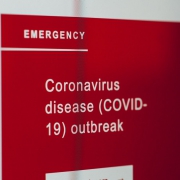In Beware of Coronavirus Scams and Other Related Malicious Sites, I made you aware of the phishing tactics spreading around the internet lately. I made sure that I would allocate a specific post regarding the protection against these online threats. Wether you admit it or not, there will be people using this global pandemic to their advantage. These cybercriminals don’t just go for healthcare institutions, but they also target your personal banking details.
Generally, cybercriminals don’t just spread threats online, but they have the audacity of going through your very homes. In fact, CNN posted an article about criminals that are posing as government authorities to scam people.
Protection Against Coronavirus Phishing Sites
As mere users, what can you do to avoid phishing scams? More importantly, if you own a business, what can you do to help your employees fall for these schemes?
-
Knowledge IS Power.
First, you have to inform everyone you know about COVID-19 so they won’t carelessly look for information elsewhere. Others may not be as well-versed as you are so keep them away from any threats by sharing the knowledge you know.
-
Only Share Official Websites.
Next, you have to stop speculating. The internet is full of conspiracy theories about the coronavirus. We all have to deal with this as a team and now is NOT the time to insist on your personal opinions. COVID-19 is a health emergency. Having said that, believe what the doctors and medical experts are saying. They are the most reputable sources of information today; don’t go sharing what you read on Facebook without verifying anything.
To help you get started, you can visit these websites:
- CDC | How to Protect Yourself & Others
- The New York Times | Coronavirus Map
- CDC | Household Checklist
-
Conduct a Quick Cyber Awareness Training.
Since this global pandemic has change the landscape of our workforce, it’s also timely to make them aware of the threats proliferating online. The virus we are fighting isn’t just found outside, but there’s also a threat spreading online. Phishing emails can endanger businesses as well. Teach all your employees on how to spot suspicious websites and emails, which are used to steal information. Most importantly, use pro-privacy tools even when one is using a shared computer at home.
In order to avoid to fall victim on these malicious email and sites, please read the following articles on cybersecurity.
- Public Health Emergency | Health Industry Cybersecurity Practices
- National Cyber Security Alliance | Cybersecurity Practices
-
Before Doing Anything, Verify First.
Lastly, don’t believe everything you read online. Verify all the information you have gathered. If you know a doctor or a nurse, you ask them first. Don’t spread unnecessary fear about the coronavirus.
Also, don’t immediately perform tasks which require you to supply sensitive information such as money transfers or signing documents. For instance, an employee got an email that he or she should transfer money immediately because a supervisor or an executive is not available at this time. Inform all your employees to:
- Examine carefully all the emails they get. Check where the email is from, the email address used, the domain name of the email. Make sure everything matches with the information that they have!
- As much as possible, verify through a phone call or through internal communication about the task especially if it entails money and classified information.
- Never reply to those phishing emails and delete them right away!


